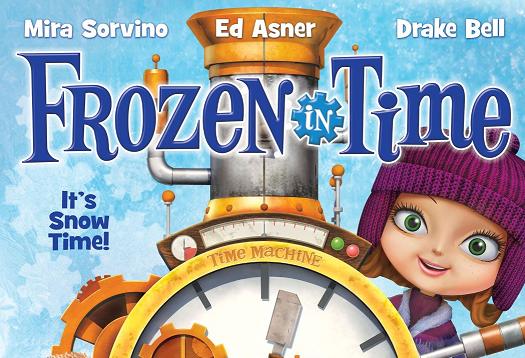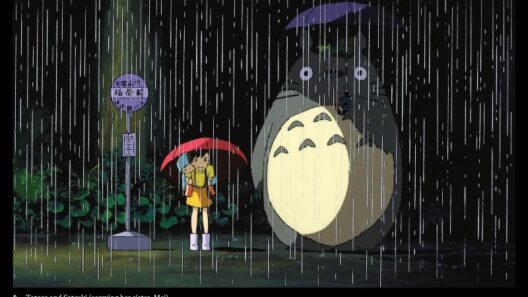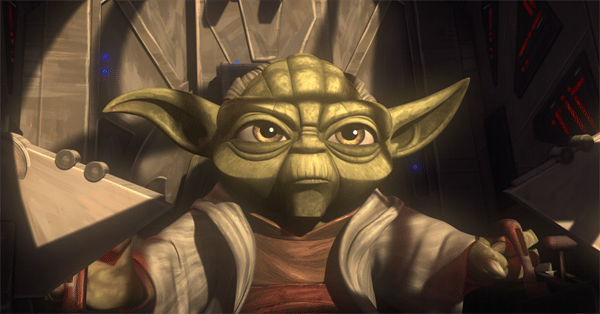
Born in Dhahran, Saudi Arabia, actress/writer Alex Essoe’s diverse body of work includes such films and TV series as Free to Go, Passion Play, House of Lies and Reaper. In Starry Eyes, Esso plays Sarah Walker, a young woman determined to make it as an actress in Hollywood. Stuck in a dead-end day job as a waitress, enduring petty friendships, and going on endless casting calls, Sarah submits to a series of strange auditions. When she finally lands the role in a new film from a mysterious production company, she undergoes a bizarre transformation that changes her into something beautiful…and altogether terrifying. In this one-on-one interview, Esso talks about her role and the challenges she faced in bringing Sarah’s character to life.
What attracted you to the role of Sarah?
Alex Essoe: I totally fell in love with Sarah’s vulnerability and fragility. And how pure her intentions are. She’s so unbelievably hard on herself, which comes from a place of truly loving what she does. The tragic flaw of Sarah is that looks for a sense of identity outside of herself, which ultimately leads to her downfall. It broke my heart when I read the script.
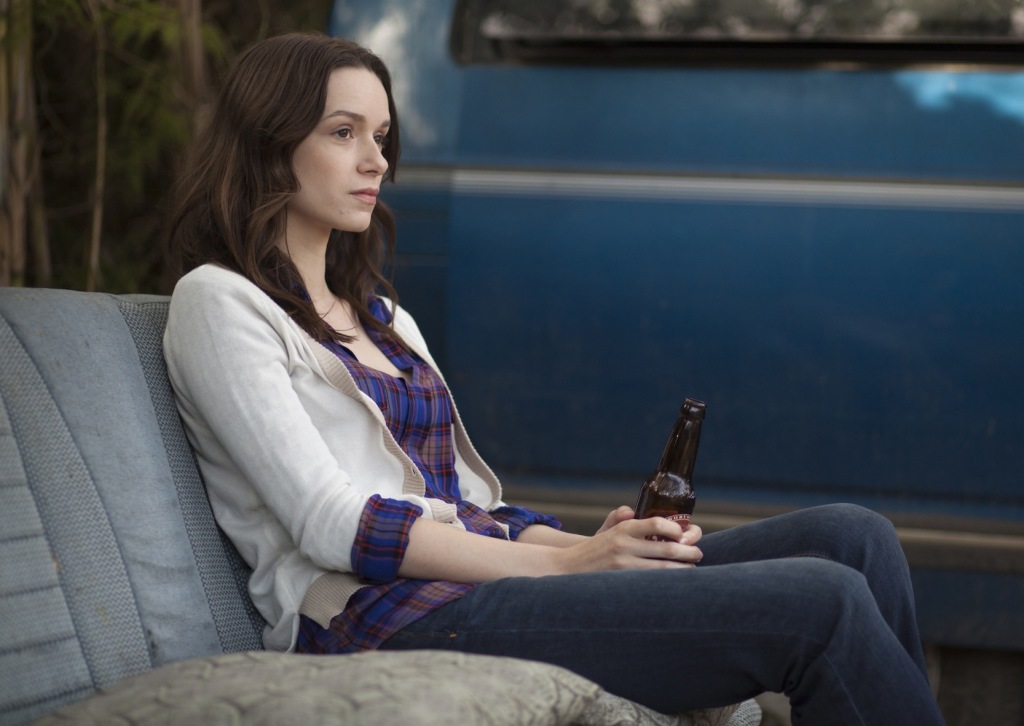
Did you audition for the role? What was that like?
AE: It was me and about 30 other girls. After an audition, I try to forget about it or you can drive yourself crazy. I didn’t hear anything for nearly four months, then I got a callback. They sent me the script, and after I read it, I told myself, I need to do everything I can do get this part. I totally fell in love with the story. So I did the callback, and after another four months, I got a call to have coffee with director Dennis (Widmyer) and we talked for about an hour about film trivia and Zulawski’s Possession, which is one of my favorite all-time horror movies. And lucky for me, my reference to Possession prompted Dennis to exclaim, “that’s actually what this film is influenced by.”

You’ve been on a few casting calls. Were there things you drew from them for this role?
AE: One thing I loved about Sarah’s experience early on in the film is how universal it is. Every actor has to deal with rejection and self-doubts. I don’t know a single actor, who after an audition, hasn’t said, “I didn’t do that right. I should have done this and made that choice.” You drive yourself crazy doing that. So, yeah, the years of casting calls, rejections and picking yourself back up—they reflect Sarah’s inner monologue, as she lives and dies by whether she’s accepted by the industry.
What was the most challenging part of bringing Sarah’s complex character to life?
AE: I would say finding what her boundaries were. Like most people, I have very definite boundaries. There are certain lines that I’m simply not interested in crossing. Sarah had to find a way to justify certain choices she made. Were I this person and had I lived this kind of life, I’d have to find all the things that surmount my personal boundaries. You have to find a way to justify everything and not judge. You can’t ever judge any character you play, otherwise, you really can’t honor them.
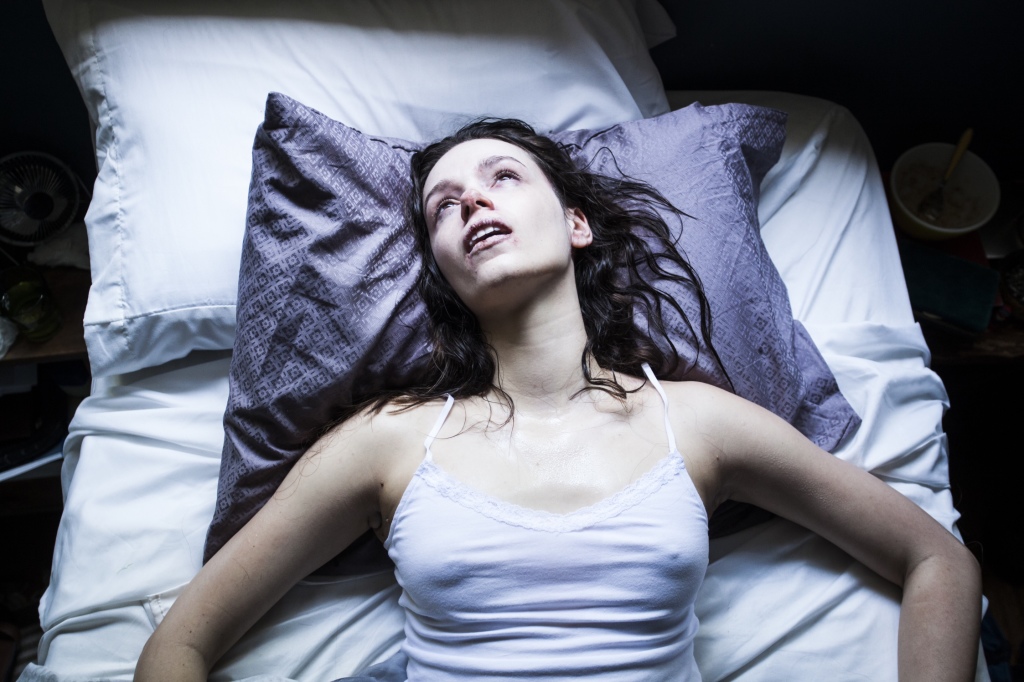
Do you have a favorite scene?
AE: The ending was a delight to shoot. The climax at the house was really fun. And the actors I worked with were great. Fabianne (Therese) especially, because I kill her like three times. And the kitchen was just a massacre.
How did you prepare for the physical brutality of the role? Your killing scenes were pretty intense.
AE: When you’re the antagonist and doling out punishment, you can’t really think of it as punishment or something that would horrify you. You have to regard it as work. A great example is Marathon Man where Laurence Olivier is torturing Dustin Hoffman. Olivier said that during that scene, he imagined himself pruning his roses at home. So that’s what I used during some of those violent scenes. Obviously the choices for Sarah were different, since she’s in a different headspace and completely broken down at that point.
What went through your mind when you read the script—with Sarah covered in mud and blood, and her face all bruised.
AE: Oh, bring it on. I couldn’t wait to get started. And the more crazy stuff they added, I said, “yes, more.” The priority is honoring the story.
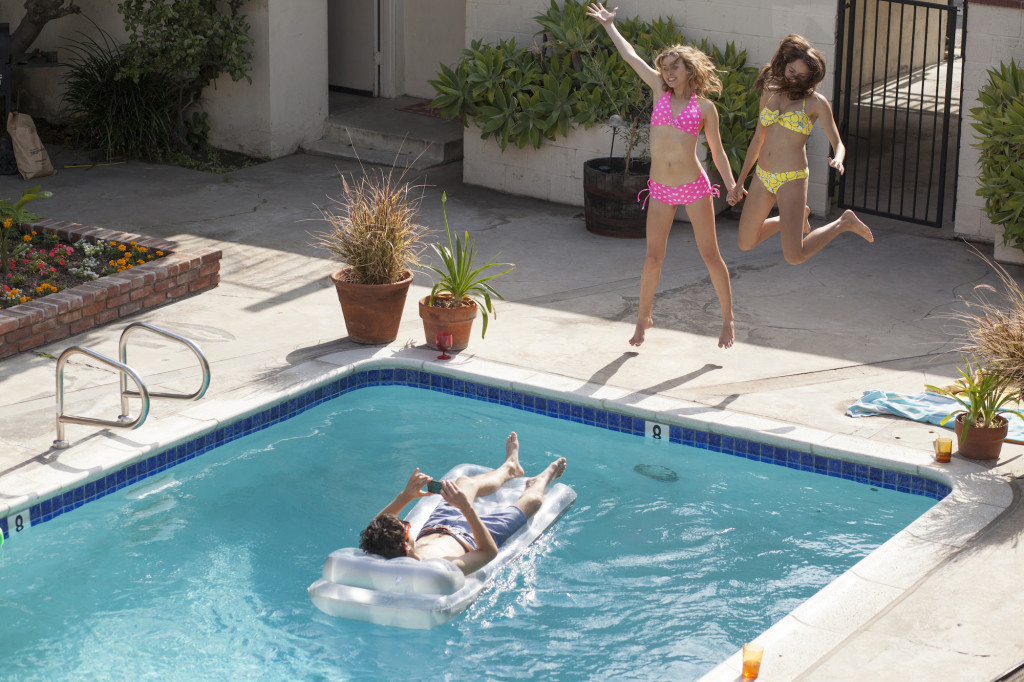
Did you really shave your head for the final scene?
AE: No, no, no. I don’t know if I’m at that point in my career where I can pull a Natalie Portman and get away with it. We had the best effects team headed by this talented man named Hugo. He was a genius. There was nothing he couldn’t do. Once he put that bald cap on, it was the creepiest thing ever. Maybe in the future, I’ll shave my head. It’s not such a bad look for me.
What message do you think the film sends to aspiring young actresses?
AE: I hope that it sends the message that there are no real rules when it comes to making your way in this industry. Don’t ever let anyone else try and tell you who you really are. You have to know who you are or other people are going to tell you who you are.
Alex A. Kecskes is a published author of "Healer a Novel" and "The Search for Dr. Noble"—both now available on Amazon. He has written hundreds of film reviews and celebrity interviews for a wide variety of online and print outlets. He has covered red carpet premieres and Comic-Con events for major films and independent releases.






